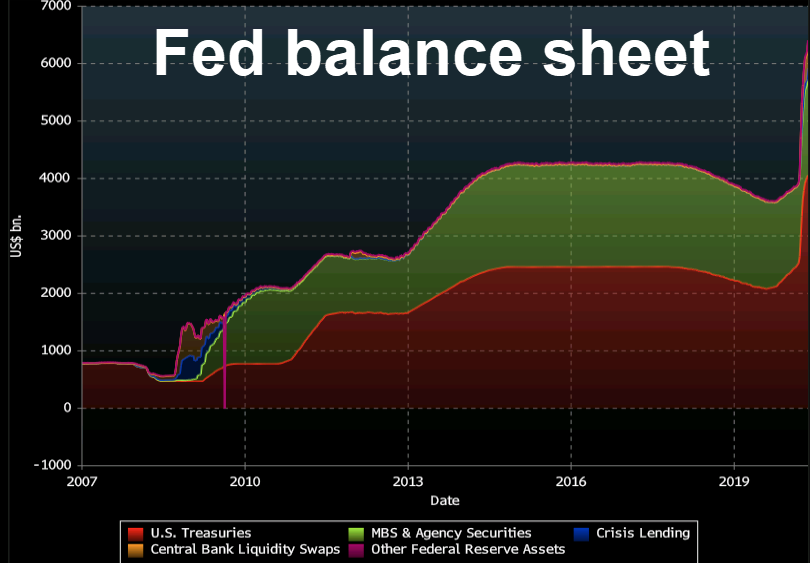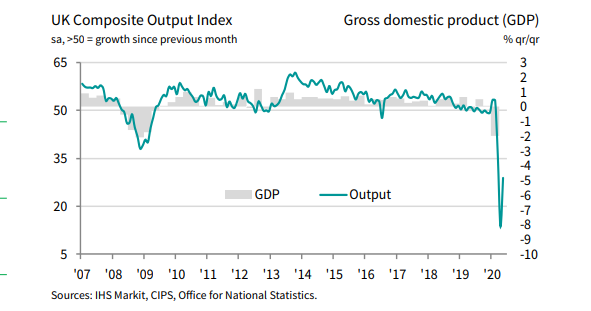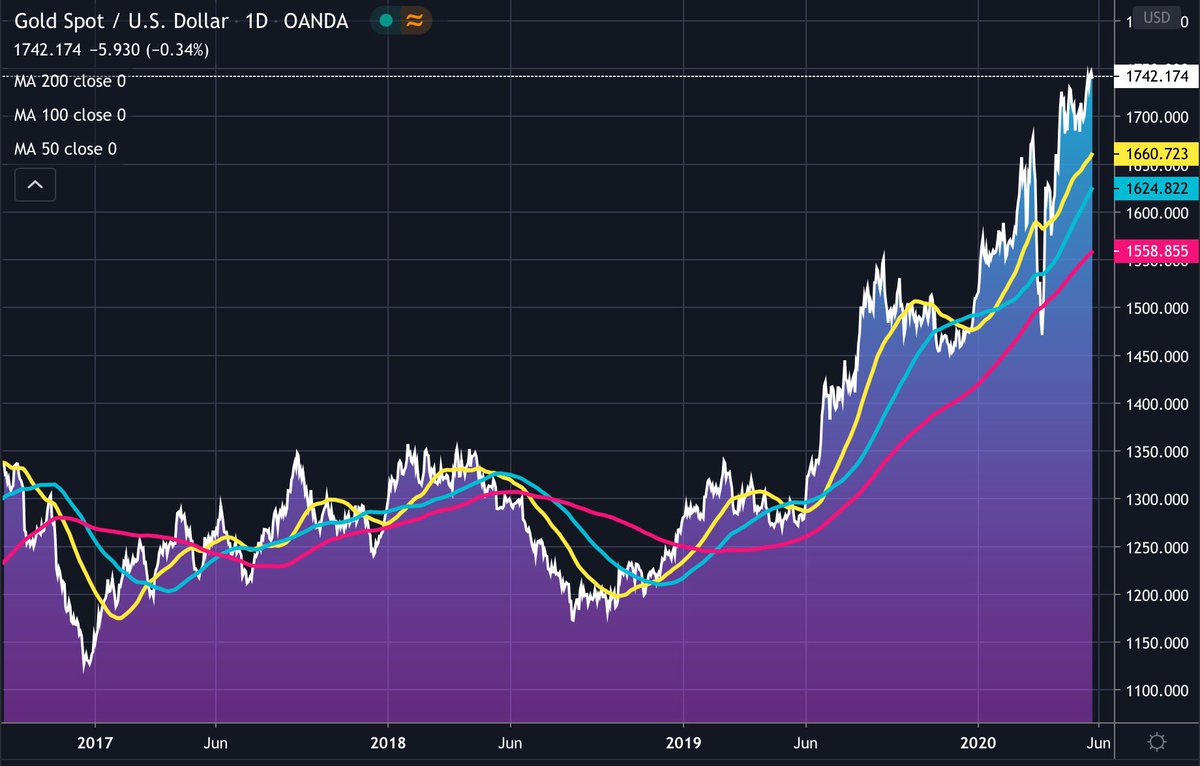The role of central banks has been perverted











“The UK economy remains firmly locked in an unprecedented downturn, with business activity and employment continuing to slump at alarming rates in May. Although the pace of decline has eased since April’s record collapse, May saw the second largest monthly falls in output and jobs seen over the survey’s 22-year history, the rates of decline continuing to far exceed anything seen previously.
“Travel and tourism firms, hotels, restaurants and producers of consumer goods such as clothing were again the hardest hit, reflecting virus containment measures, but this remains a shockingly broad-based downturn with very few companies left unscathed by the COVID-19 pandemic.
“An improvement in business confidence about the year ahead for a second successive month is welcome news, and the easing of restrictions in coming months should help boost activity in some sectors as we head into the summer.
“However, the UK looks set to see a frustratingly slow recovery, given the likely slower pace of opening up the economy relative to other countries which have seen fewer COVID-19 cases. Virus related restrictions, widespread job insecurity and weak demand will be exacerbated by growing business uncertainty regarding Brexit. We are consequently expecting GDP to fall by almost 12% in 2020. While the quarterly rate of decline looks likely to peak at around 20% in the second quarter, the recovery will be measured in years not months.”


A month has hardly passed since the publication of my article about airlines, and the market is already full of rumors about one of the largest airlines approaching bankruptcy. In that post, I tried to give the soft version of the situation; moreover, it was my individual opinion which could be a mistake. However, time shows that things are worse than I expected.
Today, I will reveal other aspects of risks in the sector of air transportation and give hints on how to make money on airlines stocks; also, we already have the information about the income of airlines in the first quarter.
As I wrote earlier, 10 airlines asked the US government for financial help, thus increasing the debt load. As long as the flow of passengers has dried out, the debts will be extremely hard to pay off. Apart from the debt, the company also needs maintenance, which includes expenses on salaries, the maintenance of airplanes, etc.
Before airlines got in trouble, clients used to buy tickets several months before the flight with a good discount. One side spent less on their trips while the other could plan flights more efficiently.